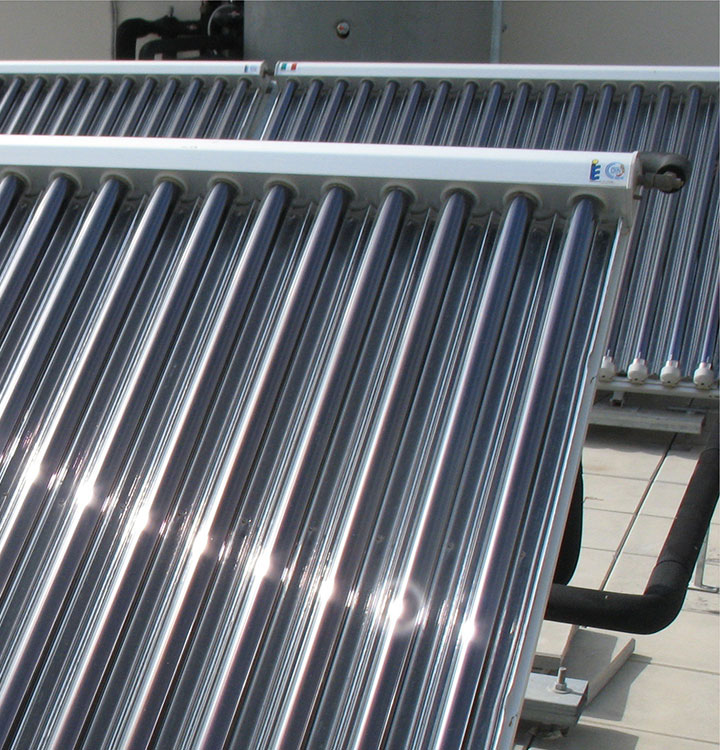Securing energy from solar power.
Weatherproof, UV-resistant and heat-resistant up to 150°C, high temperature EPDM foams provide reliable insulation in solar applications.
Thanks to their flexibility, they are ideal to insulate pipes which are difficult to access and assure constant solar yields.
Thermal Solar Systems
Insulation must be even more optimised for solar thermal applications than anywhere else. Since the pipelines are partially exposed to the open air, they are subjected to various weather influences. If the insulation becomes soaked, its conductivity also increases, wherein its thermal performance capacity is reduced. Since moisture can form on its exterior, an additional covering in the outside area alone is often insufficient. Insulation based on synthetic rubber is non-hygroscopic, thanks to its closed-cell structure. It maintains a thermal conductivity equilibrium and retains its insulating capacity even under the influence of moisture.

Demands on solar thermal insulation
Solar systems are gaining increasing importance as an alternative energy source. In order to ensure they provide continuously high yields, the pipework needs to be protected from energy losses. Flexible, high temperature pipe insulation has proven to be up to the elevated demands of solar applications.
 EN
EN  IT
IT  FR
FR  DE
DE 
